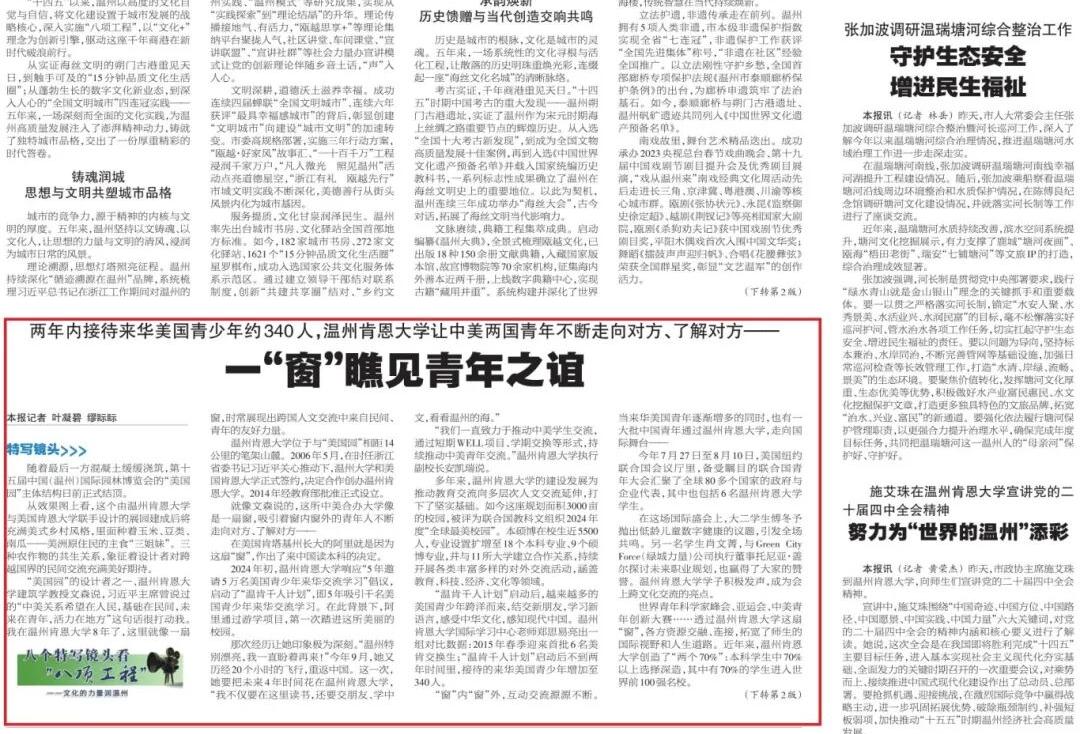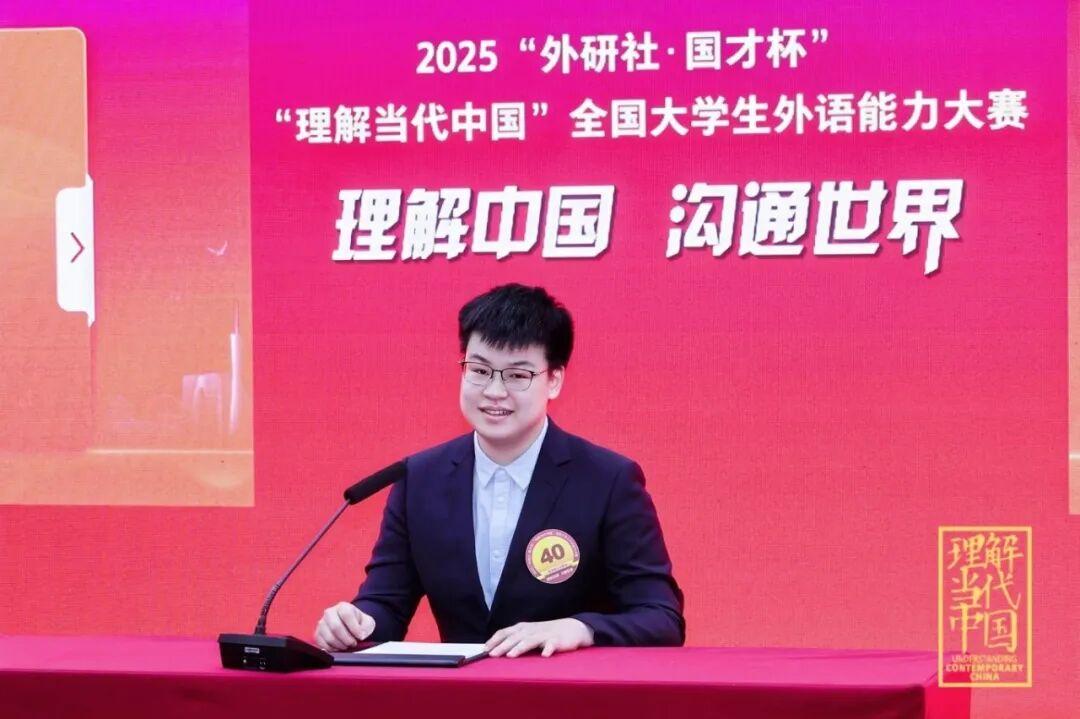
Wajahat Ali
-
Position:Lecturer of Economics
-
Office:CBPM B518
-
Email:
Education
PhD., Economics, University Technology PETRONAS, 2014-2017
M.Phil, Economics, University of Peshawar, 2010-2013
BSc., Economics, University of Peshawar, 2006-2010
Biography
Dr. Wajahat Ali, PhD Social Sciences and Humanities (Economics) is working as Lecturer at Wenzhou-Kean University (Starting February 2022). Dr. Wajahat Ali has earned his Doctorate Degree in Economics from Universiti Teknologi PETRONAS Malaysia with research focus on Environmental and Energy Economics. Dr. Wajahat Ali served as Assistant Professor at Sarhad University of Science and Information Technology, Peshawar, Pakistan from October 2017 to April 2021. He then joined Bahria University Islamabad, Pakistan in May 2021. Dr. Wajahat Ali has published in reputable journals from Elsevier, Springer, Emerald, Wiley and Taylors and Francis among others.
Research Interest
The research focus of his dissertation was on the role of technological innovation, structural shifts in the composition of economy, and intertest rate along with other macroeconomic variables on environmental quality in the case of Malaysia. His focus of research is also towards sustainable tourism and tourism forecasting. Last but not the least, he is keen to research in the area of Circular Economy which is one of the burning issues nowadays due to scarce resources and unlimited wants of human beings, therefore transitioning from linear economy to circular economy is the call of the day and an area to be researched.
Selected Publications
Wajahat Ali*, Azrai Abdullah, and Muhammad Azam Khan, “Re-visiting the Environmental Kuznets Curve Hypothesis for Malaysia: Fresh Evidence from ARDL bounds testing approach”, Renewable and Sustainable Energy Reviews, 2017, 77, 990-1000, (Elsevier, Impact Factor 12.110). 1016/j.rser.2016.11.236. (Scopus, SCI, Wos, Q1).
Wajahat Ali*, Azrai Abdullah, and Muhammad Azam Khan, “The dynamic relationship between structural changes and CO2 Emissions in Malaysia: A Cointegrating Approach”, Environmental Science and Pollution Research, 2017,24(14), 12723–12739, (Springer link, Impact Factor 3.056) 1007/s-11356-017-8888-6. (Scopus, Wos, SCI, Q2).
Wajahat Ali*, Azrai Abdullah, and Muhammad Azam Khan., The Dynamic Linkage between Technological Innovation and carbon dioxide emissions in Malaysia: An Autoregressive Distributed Lagged Bounds Approach, International Journal of Energy Economics and Policy, 2016, 6(3), 389-400. (Scopus Journal, Q2)
Wajahat Ali* and Azrai Abdullah, The Impact of Trade Openness on the Economic Growth of Pakistan: 1980-2010, Global Business and Management Research: An International Journal. Vol. 7, No. 2 (2015).
Wajahat Ali*, Inam Ur Rahman, Muhammad Zahid, Muhammad Anees Khan and Tafazal Kumail “Do Technology and Structural changes Favour Environment in Malaysia: An ARDL based Evidence on Environmental Kuznets Curve” (2019). Environment, Development, and Sustainability (Springer), 22, 7927-7950. Impact Factor 2.191.https://doi.org/10.1007/s10668-019-00554-7. (Scopus, WOS, ESCI, Q2).
Yapping Liu, Tafazal Kumail, Wajahat Ali, and Farah Sadiq. “The dynamic relationship between CO2 emission, International Tourism and energy consumption in Pakistan: A cointegration approach. Tourism Review,2019, 74(4), 761-779. (Emerald, Impact Factor 2.908) https://doi.org/10.1108/TR-01-2019-0006. (SSCI, Q1).
Sadaqat Ali, Linda Peters, Ikram Ullah, Wajahat Ali and Naveed Saif “Organizational Learning and Hotel Performance: The Role of Capabilities’ Hierarchy” International Journal of Hospitality Management, 85, February 2020,102349. (Elsevier Impact Factor 6.701) (SSCI, Q1). https://doi.org/10.1016/j.ijhm.2019.102349
Muhammad Zahid, Haseeb Ur Rehman, Wajahat Ali and Musa Khan. “Boardroom gender diversity: Implications for corporate sustainability disclosures in Malaysia”, Journal of Cleaner Production, 244, January 2020, 118683, (Elsevier) Impact Factor 7.246. https://doi.org/10.1016/j.jclepro.2019.118683. (ESCI, Scopus, Q1)
Wajahat Ali* and Azrai Abdullah., The Long-run Relationship between Economic Growth, Financial Development, Trade Openness and CO2 Emissions in Malaysia, 2015 International Symposium on Technology Management and Emerging Technologies (ISTMET), August 25 – 27, 2015, Langkawi, Kedah, Malaysia (978-1-4799-1723-5/15/
Tafazal Kumail, Wajahat Ali* and Farah Sadiq, Dingwei Wu and Asad Aburumman (2020). Dynamic linkages between Tourism, Technology and CO2 Emissions in Pakistan. Anatolia, 31(3), 436-448. (Taylors and Francis Online). https://doi.org/10.1080/13032917.2020.1742169. (Scopus, WoS, Q2).
Muhammad Zahid, Haseeb Ur Rehman, Wajahat Ali, Numan Habib and Fazaila Shad (2021). “Integration, implementation and reporting outlooks of sustainability in higher education institutions (HEIs): Index and case base validation” International Journal of Sustainability in Higher Education, 22(1), 120-137. Impact Factor 2.0. https://doi.org/10.1108/IJSHE-10-2019-0308. (SSCI, Q2).
Muhammad Zahid, Haseeb Ur Rehman, Musa Khan, Wajahat Ali and Fazaila Shaad. Addressing endogeneity by proposing novel instrumental variables in the nexus of sustainability reporting and financial performance: A step-by-step procedure for non-experts. Business Strategy and the Environment (Wiley). Impact Factor 5.483 (Scopus, WoS, Q1)
Wajahat Ali, Tafazal Kumail, Farah Sadiq, Muhammad Zahid, Kazi Sohag (2020). “A Cointegration Analysis of Structural Change, International Tourism and Energy Consumption on CO2 emission in Pakistan”. Current issues in Tourism, 23(23) 3001-3015. Impact Factor 4.147. (SSCI, Q1).
Tafazal Kumail, Wajahat Ali*, Farah Sadiq (2021). Nexus of Terrorism and Tourism: Empirical evidence from South Asian countries. Tourism Analysis: Revista de Análisis Turístico (Emerald) (Scopus), 28(1), 1-12.
Inam Ur Rahman, Syed Faizan Iftikhar, Sanam Wagma Khattak*, Wajahat Ali, Azra and Sajad Ali (2021). South Asian Experience of Trade Liberalization: Implications for Food Security. Sarhad Journal of Agriculture, 37(1), 52-63.
Wajahat Ali, Farah Sadiq, Tafazal Kumail, and As’ad Aburumman (2020). Do International Tourism, Structural Changes, Trade Openness and Economic Growth Matter in determining CO2 emissions in Pakistan? Tourism Analysis: An Interdisciplinary Tourism and Hospitality Journal 25(2-3).
Liu, Y., Sadiq, F., Ali, W., & Kumail, T. (2022). Does tourism development, energy consumption, trade openness and economic growth matters for ecological footprint: Testing the Environmental Kuznets Curve and pollution haven hypothesis for Pakistan. Energy, 123208.



